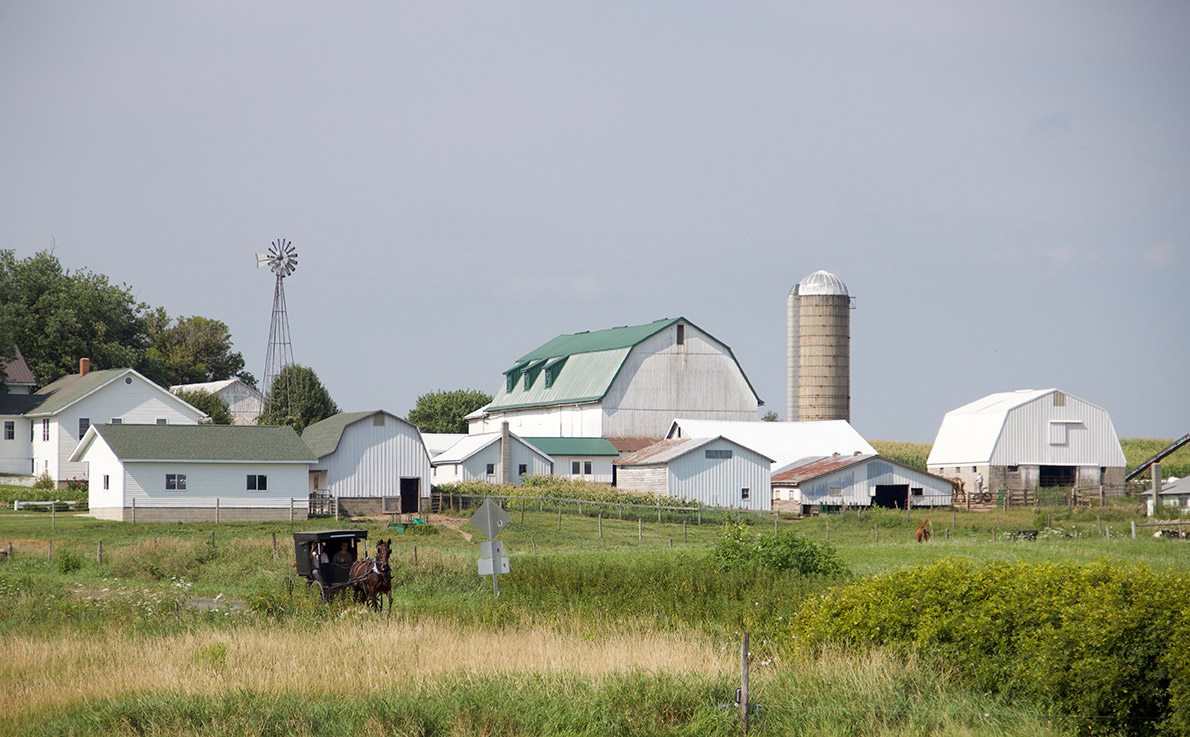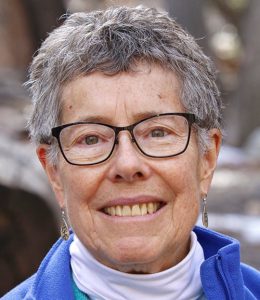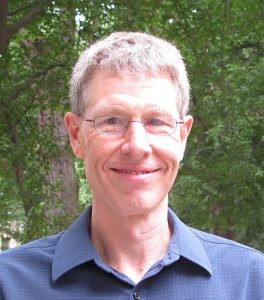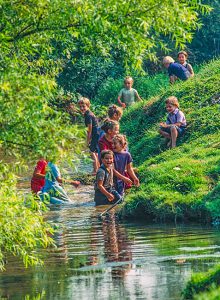
David McConnell and Lyn Loveless collaborate on book about the Amish relationship to the environment

David McConnell, professor of anthropology, and Lyn Loveless, emerita professor of biology, collaborated on the book Nature and the Environment in Amish Life, an interdisciplinary exploration of the complicated relationships that Amish communities have with the natural world.
Published in 2018 by Johns Hopkins University Press, the book has recently garnered favorable attention. It was reviewed positively in the Times Literary Supplement in 2019 and in the two leading journals for Amish Studies in the U.S. McConnell and Loveless’s analyses were also highlighted in a blog post on The Conversation.
Drawing on seven years of collaborative interviews and fieldwork, McConnell and Loveless examine the Amish reputation of being environmentally friendly and argue that the truth is more complex. “To our knowledge, this is the first scholarly book that explores the Amish relationship to nature in all its complexity and that looks behind the prevailing notion of the environmentally conscious Amish,” McConnell said.

Lyn Loveless, emerita professor of biology

David McConnell, professor of anthropology
McConnell, who has studied and taught about the Amish for many years, first thought of the idea for Nature and the Environment in Amish Life when completing his previous book, An Amish Paradox. Loveless provided the necessary ecological background to the book. “I knew I needed a co-author who could bring an environmentalist’s and natural scientist’s perspective to the project,” McConnell said. “As a botanist, ecologist, and committed environmentalist, Lyn provided a strong complement, and sometimes a needed corrective, to my background in cultural anthropology.”
Loveless said the project was a departure from her research on the genetic structure of plant populations but engaged her longtime interest in people’s relationship to the environment. “As an ecologist, I have always been very interested in what meanings people give to the natural world: how they appreciate it, comprehend it, and use it,” she said. “Working with David on this book gave me the chance to explore that interest and try to bring my ecological understanding to bear on an interesting group of people with a particular way of life.”
 The scholars conducted interviews for the book in Amish settlements across the United States, including the Holmes County Amish settlement near Wooster. They also included Wooster students in the research process. “Seven Wooster students worked on the project as research assistants, helping with data collection, transcription of interviews, and more,” McConnell said. He also incorporated his findings into his anthropology course titled Amish Culture. “It absolutely invigorated that course,” he said, “because of the vividness of the vignettes and anecdotes I was able to bring back from the fieldwork.”
The scholars conducted interviews for the book in Amish settlements across the United States, including the Holmes County Amish settlement near Wooster. They also included Wooster students in the research process. “Seven Wooster students worked on the project as research assistants, helping with data collection, transcription of interviews, and more,” McConnell said. He also incorporated his findings into his anthropology course titled Amish Culture. “It absolutely invigorated that course,” he said, “because of the vividness of the vignettes and anecdotes I was able to bring back from the fieldwork.”
Loveless noted that she used her experience working on the book to open up conversations with biology students about the possibilities of interdisciplinary research. “Our collaborative project was a good way to model and to reinforce the idea that disciplinary boundaries are fluid, and that science is embedded in all of our lives, in how we interact with the world around us,” she said.
Posted in News on September 18, 2020.
Related Posts
Related Areas of Study
Environmental Studies
Natural sciences, social sciences, and humanities courses combine for those who want to be part of environmental solutions
Major MinorBiology
Explore molecular and cellular biology, ecology and more with top faculty and access to extensive lab facilities.
Major MinorAnthropology
Use problem-solving and research skills to explore and understand communities and cultures in every part of the world.
Major Minor

